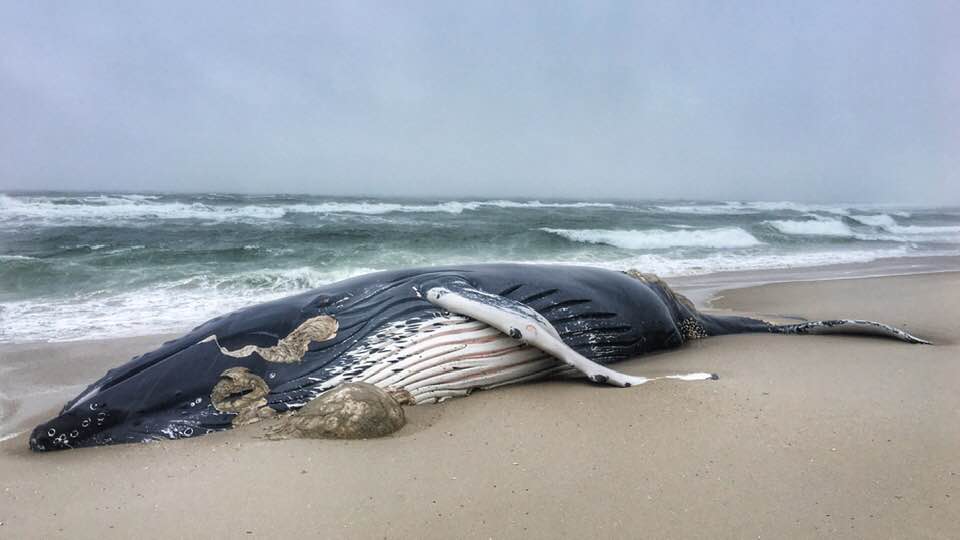Beachgoers capture photos of washed up whale, sea turtle along New Jersey beaches
ISLAND BEACH STATE PARK, N.J. – An apparent humpback whale washed ashore on the southern end of Island Beach State Park in New Jersey on Sunday, drawing onlookers including photographer Kevin Knutsen.
Knutsen said he located the whale around 11:30 a.m. not far from the park's kayak launch after a friend called to tell him about the carcass.
"It smelled like a dead whale," he said, adding that he has seen multiple dead whales over the years that have washed ashore at Island Beach State Park.
Knutsen, who worked at the park in the past, said that onshore wind will push them onto the beach.
Investigation: Holland America cruise ship's close contact with humpback whales under investigation
"There were some bite marks taking out of the lower jaw," but no obvious signs of what killed the massive animal, he said.

Knutsen said the Marine Mammal Stranding Center was called to the area to inspect the whale. The center did not immediately return a request for comment Sunday.
The National Oceanic and Atmospheric Administration reports that as of Oct. 4, 105 humpback whales have been found along the East Coast of the United States since January 2016. The instances are called "unusual mortality events."
About 30 miles north of where the humpback whale was found at Island Beach State Park, a different beachgoer came upon another sea animal washed ashore.
For once, good environment news: A humpback whale population has come back from the brink
Jeanne Ricca Newman photographed what appeared to be a leatherback sea turtle near the Monmouth Beach Bathing Pavilion.
In a Facebook message to a reporter, Newman said the dead turtle "looks like he was hit by a boat, back all torn."
Leatherback turtles can reach a shell length of 6½ feet and weigh up to 2,000 pounds, according to the Conserve Wildlife Foundation of New Jersey. They feed upon jellyfish, sea squirts and soft-bodied animals, but their populations have plummeted because of overharvesting and nesting habitat loss, according to the foundation.
Humpback whales are also common in New Jersey's waters, but are at risk, according to the foundation. They are susceptible to colliding with ships, as well as overfishing, pollution, aquaculture and offshore energy development, according to the organization.
Follow Amanda Oglesby on Twitter: @OglesbyAPP
This article originally appeared on Asbury Park Press: Whale, sea turtle wash up along different New Jersey beaches

